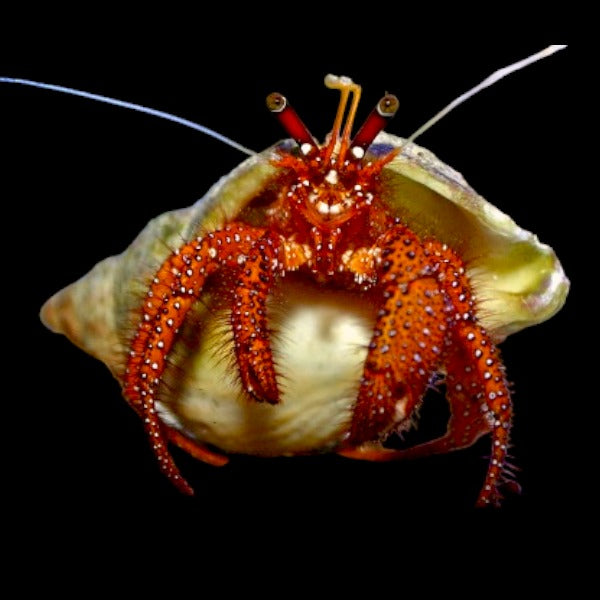Description
| Dardanus megistos |
One of the largest hermit crabs, reaching up to 30 cm in length. It is bright red to orange with white spots encircled by blue/black lines.
Morphology
Like in all representatives of the family Diogenidae, D. megistos has the left claw larger than the right. The claws have spines and are covered in stiff setae giving them a hairy appearance.
Evolution
The evolution of hermit crabs is strongly linked to the evolution of the gastropod shells they use for protection. There are 42 species of Dardanus, of which 18 occur in Australia.
Behaviour
Can get aggressive with each other when competing for gastropod shells. Feeds on molluscs.
Method of reproduction
Sexual
Habitat
Marine
Associated with coral reefs, from the intertidal zone up to 100m depth.
Distribution
Widespread Indo-West Pacific
Life Cycle
Several planktonic larval stages









